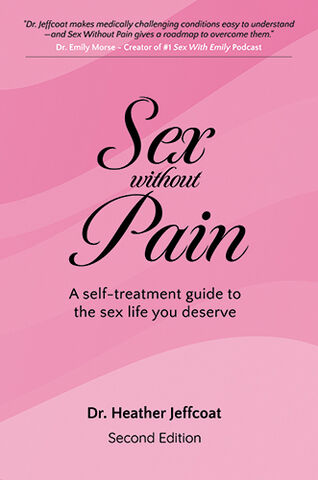Alphabetical Index of Articles on Women's Sexual, Pelvic Floor, and Reproductive Health
Common Postpartum Issues That Make Sex Painful - and What You Can do About Them

Many women experience lower libido, vaginal dryness, sore muscles, and tender skin in the genital area after childbirth.
These issues can make sex uncomfortable, or even unappealing.
Many women are not comfortable bringing up their sex lives to their doctors and midwives, thinking that it “will get better with time.” However, if you find your sexual health impacted for more than a few months after childbirth, you might start to wonder when you’ll be feeling back to normal.
Could Your Lube be Hurting You?

Have You Been Wondering Could Your Lube be Hurting You?
From alleviating vaginal dryness to improving anal play, choosing the right lube is important
Personal lubricant (lube) is something most people will use at least once during their sexual lifetimes, if not every time they are sexually active.
What are lubricants?
Lubricants are fluid or gel substances designed to offset genital dryness or inadequate natural lubrication which can be associated with discomfort or pain with sex or general activity. Lubes can be used for sexual activity, or just to alleviate dryness throughout the day.
Ghostpartum | Advocating for Proper Postpartum Care

Proper Postpartum Care is Crucial to Prevent "Ghostpartum"
Today we are addressing “Ghostpartum,” which may sound like a Halloween ghoul or goblin, but is actually a term used to describe the postpartum period where many do not receive appropriate care as they transition from pregnancy to parenthood. In fact, according to the American College of OB/GYN (ACOG), up to 40 percent of postpartum folks do not even seek proper postpartum care.
Postpartum Pelvic Pain and What You Can Do About It

Pelvic pain during the postpartum period is common, even for those who had a “perfect and easy” pregnancy, labor and delivery. Often times, healthcare providers will tell women that the pain “will get better with time,” however it's important to advocate for yourself and seek out care if you feel like you need it. Read my previous article about advocating for your postpartum care here.
Common types of postpartum pelvic pain and what you can do at home:
Vaginal Dryness
After delivery, your estrogen levels drop and progesterone levels stay high, especially if your are breastfeeding.
What you can do:
A simple solution can be drinking more water and using a water-based lubricant, read my previous blog on choosing the right lubricant for you.












